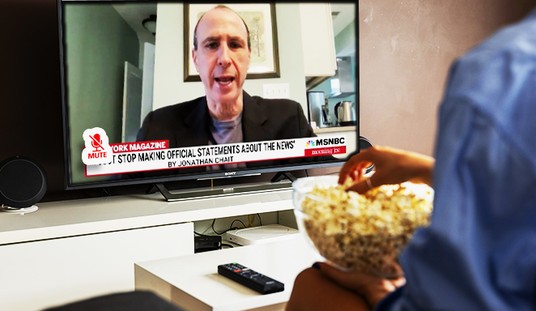Among some party loyalists, there is a natural tendency to maintain that the GOP is simply suffering from a “communications problem,” that if only Republicans spoke more loudly, more insistently, and with greater purity and passion, they would broaden their appeal and proceed to sweep national elections. But that counsel, appealing as it might be to a shrinking segment of the electorate, is surely not adequate to present circumstances. More is needed than pumping up the volume.
Intellectual honesty is the first requirement of self-renewal. Republican problems are not superficial or transient…
Republicans need to express and demonstrate a commitment to the common good, a powerful and deeply conservative concept. There is an impression—exaggerated but not wholly without merit—that the GOP is hyper-individualistic. During the Republican convention, for example, we repeatedly heard about the virtues of individual liberty but almost nothing about the importance of community or social solidarity, and of the obligations and attachments we have to each other. Even Republican figures who espouse relatively moderate policy prescriptions often sound like libertarians run amok.
Speaking of the Republican Party, we are currently seeing two different splits. The first is the establishment vs. the Tea Party. The examples here are Karl Rove vs. conservative groups, as well as Haley Barbour vs. the Club for Growth. But the second split is Washington vs. non-Washington Republicans. And the best way to illustrate this split is between Marco Rubio (Washington) and Bobby Jindal (non-Washington). As we wrote yesterday, Rubio’s State of the Union response was similar to any speech you’d hear from Mitt Romney in 2012, with the exception of Rubio’s different background and his personal story. On the other hand, Jindal has argued that his party should stop focusing so much on Washington budget battles and should instead focus on what’s taking place in the states. We single out these two Republicans because of the obvious 2016 ramifications. Both are conservatives; both appear to be what the party needs as far as looks are concerned (the party is tired of being defined as the party of white men); but both do represent two different schools of thinking of how to rebrand the party.
A new battle has flared inside the Republican Party in recent days as supporters of more-liberal immigration laws wage a behind-the-scenes campaign to discredit the influential advocacy groups that have long powered the GOP’s hard-line stance on the issue…
Republicans pushing the party to rethink its approach to the issue are accusing those groups — Numbers USA, the Center for Immigration Studies (CIS), and the Federation for American Immigration Reform (FAIR) — of masquerading as conservative. Critics say the groups and some of their supporters are pressing an unorthodox agenda of strict population control that also has included backing for abortion, sterilization and other policies at odds with conservative ideology.
“If these groups can be unmasked, then the bulk of the opposition to immigration reform on the conservative side will wither away,” said Alfonso Aguilar, executive director of the Latino Partnership for Conservative Principles and a leading organizer of the effort.
Officials from the groups say they are the victims of a smear campaign that unfairly characterizes their mission.
The worst part of the Obama campaign, remember, was its candidate: He kept saying stupid things such as “the private sector is doing fine” and “you didn’t build that” and then he totally, completely, massively flopped in the first presidential debate. He won anyway because of strategists like Plouffe, Axelrod, Messina, and this guy and because the Republicans spent most of their time warning about a fiscal crisis that hasn’t happened. The national GOP simply does not know how to reach its voters and provide them tangible benefits and positive reasons to show up at the polls. As if to prove this point, much of the Republican establishment has reacted to the party’s recent defeat by rallying behind an amnesty for people who did not and will not vote for them.
Maybe a better way to win over Americans of every ethnicity would be to present a specific economic agenda to increase take-home pay through radical changes to the way we pay for health care, reductions in payroll taxes, and a nationalist approach to trade. Also last I checked Americans of every ethnicity drive cars so they might support Republicans who called for better roads and bridges and who championed government programs to encourage telecommuting. But enough of this crazy talk. What Americans really want, I’m told, is a cut in the corporate tax rate.
“And we can’t be afraid to call out Rush Limbaugh,” said Goodwin’s fiancée, S. E. Cupp, a New York Daily News columnist and a co-host of ”The Cycle” on MSNBC. “If we can get three Republicans on three different networks saying, ‘What Rush Limbaugh said is crazy and stupid and dangerous,’ maybe that’ll give other Republicans cover” to denounce the talk-show host as well…
Proximus seeks to marginalize the more strident talking heads by offering itself up to — or if necessary, forcing itself upon — the party as a 21st-century mouthpiece. “If I were training a candidate who’s against gay marriage,” Cupp told me, “I’d say: ‘Don’t change your beliefs, just say legislatively this is not a priority, and I’m not going to take away someone’s right. And if abortion or gay marriage is your No. 1 issue, I’m not your guy.’”…
She went on to say, “I don’t think we win by subtraction” — meaning, by casting out the party’s right wing to entice the centrists. Instead, Cupp and her fellow travelers hope to revive Lee Atwater’s bygone “big tent,” under which gay people and Tea Party members and isolationists and neocons would coexist without rancor. But Atwater, the legendary R.N.C. chairman, did not have to worry about freelance voices like Limbaugh and Todd Akin offending whole swaths of emerging demographic groups. Nor during the Atwater era, when Ronald Reagan was president, did the party’s most extreme wing intimidate other Republicans into legislating like extremists themselves, thereby further tarnishing the party’s image. When I mentioned this to the Proximus gathering, Goodwin explained the dilemma faced by Republicans in Congress. “What forces them to vote that way, 9 times out of 10, is a fear of a primary challenge,” he said. “What we hope to accomplish is to bring more voters into Republican primaries, so that it isn’t just the far right that shows up at the polls.”
The dilemma, Goodwin acknowledged, is that the far-right rhetoric may well repel such voters from participating in G.O.P. primaries to begin with. “We recognize that this isn’t something that’s going to happen anytime soon,” he said.
My conversations this week with two Republican officials, along with a Democratic strategist’s timely memo, reflect a growing school of thought in Washington that social change and a disillusioned electorate threaten the entire two-party system…
Between bites of an $18.95 SteakBurger at the Palm, one of Washington’s premier expense-account restaurants, Republican consultant Scott Reed summed up the state of politics and his beloved GOP. “The party,” he told me, “is irrelevant.”
He cited the familiar litany of problems: demographic change, poor candidates, ideological rigidity, deplorable approval ratings, and a rift between social and economic conservatives.
“It’s leading to some type of crash and reassessment and change,” said Reed, who ran Bob Dole’s 1996 presidential campaign and remains an influential lobbyist and operative. “It can’t continue on this path.”
Visit NBCNews.com for breaking news, world news, and news about the economy








Join the conversation as a VIP Member